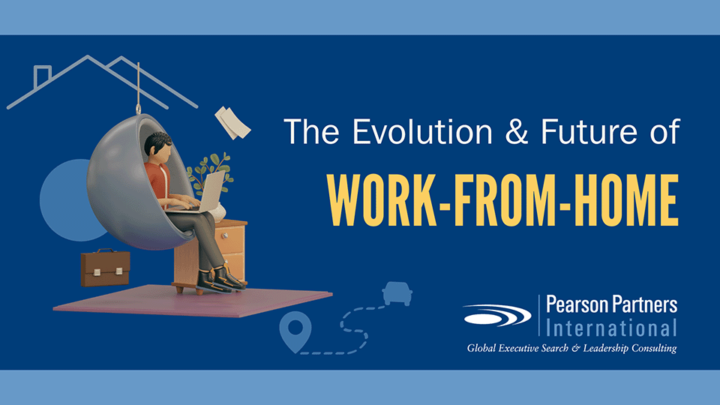The Evolution and Future of Work-From-Home
The work-from-home and work-from-anywhere (WFH/WFA) model has profoundly transformed in recent years. What was once considered a novel concept has become an integral part of the modern workplace. The COVID-19 pandemic accelerated the global shift towards remote work, and as a result, employers and employees have had to adapt to this new way of working. In this article, we explore the changing work-from-home environment, its impact on individuals and organizations and the future of remote work.
The Pandemic Push: WFH Goes Mainstream
The beginning of the COVID-19 pandemic forced organizations worldwide to rapidly implement remote work policies. In a matter of weeks in early 2020, offices emptied, employees set up makeshift home offices, and business leaders had to quickly adopt new ways of managing their teams. This unprecedented shift was challenging and eye-opening, revealing the potential of remote work while highlighting its shortcomings.
Increased Flexibility: One of the most significant advantages employees gained from remote work was increased flexibility. Many employees were able to set their schedules, allowing for a better work-life balance. This newfound flexibility boosted morale and job satisfaction.
Technology Adoption: Companies invested heavily in technology to support remote work. Video conferencing, project management tools and cloud-based applications became essential for communication and collaboration. This tech adoption paved the way for efficient remote work environments.
Challenges of Isolation: While remote work offered many benefits, it also introduced difficulties such as social isolation, loneliness and blurred boundaries between work and personal life. Many employees missed the office camaraderie, and some struggled with burnout.
Adapting to a Hybrid Future
As the initial shock of the pandemic subsided, organizations began to rethink their long-term remote work strategies. Many adopted a hybrid approach, allowing employees to split their time between the office and home. This shift has had significant implications for the future of work.
Office Redefined: Offices are evolving into collaboration hubs rather than traditional workspaces. In-person workplaces facilitate team meetings, brainstorming sessions and in-person collaboration, while employees can complete individual tasks remotely.
Emphasis on Outcomes: With employees working in different locations, organizations are shifting from monitoring hours worked to measuring outcomes and productivity. This change in mindset promotes trust and empowers employees to manage their time effectively.
Talent Pool Expansion: Remote work has broadened the talent pool for hiring. Companies supporting remote work can tap into a global talent pool while expanding opportunities for diversity and inclusion.
Challenges and Solutions
While the changing work-from-home environment offers numerous benefits, it also presents pressing challenges.
Digital Fatigue: Prolonged screen time and virtual meetings can lead to digital fatigue. Organizations must promote breaks, encourage offline work and provide wellness and mental health support tools.
Cybersecurity Concerns: Remote work can expose companies to cybersecurity risks. Robust security measures and technology deployment are essential to protect sensitive data and systems.
Communication and Culture: Maintaining a strong company culture and effective, consistent communication can be challenging in a remote or hybrid setup. Regular team-building activities and clear communication channels are essential.
Work-from-home has come a long way from its early days as a niche concept. The pandemic accelerated its adoption, bringing both opportunities and challenges. As organizations continue to adapt and refine their remote work strategies, the future of work will likely be a hybrid model combining the best of both worlds—the flexibility of remote work and the collaboration of in-person interaction. Companies must prioritize technology, well-being and a culture of trust and accountability to succeed in this evolving landscape. The changing work-from-home environment is here to stay, and those who embrace it will thrive.

















